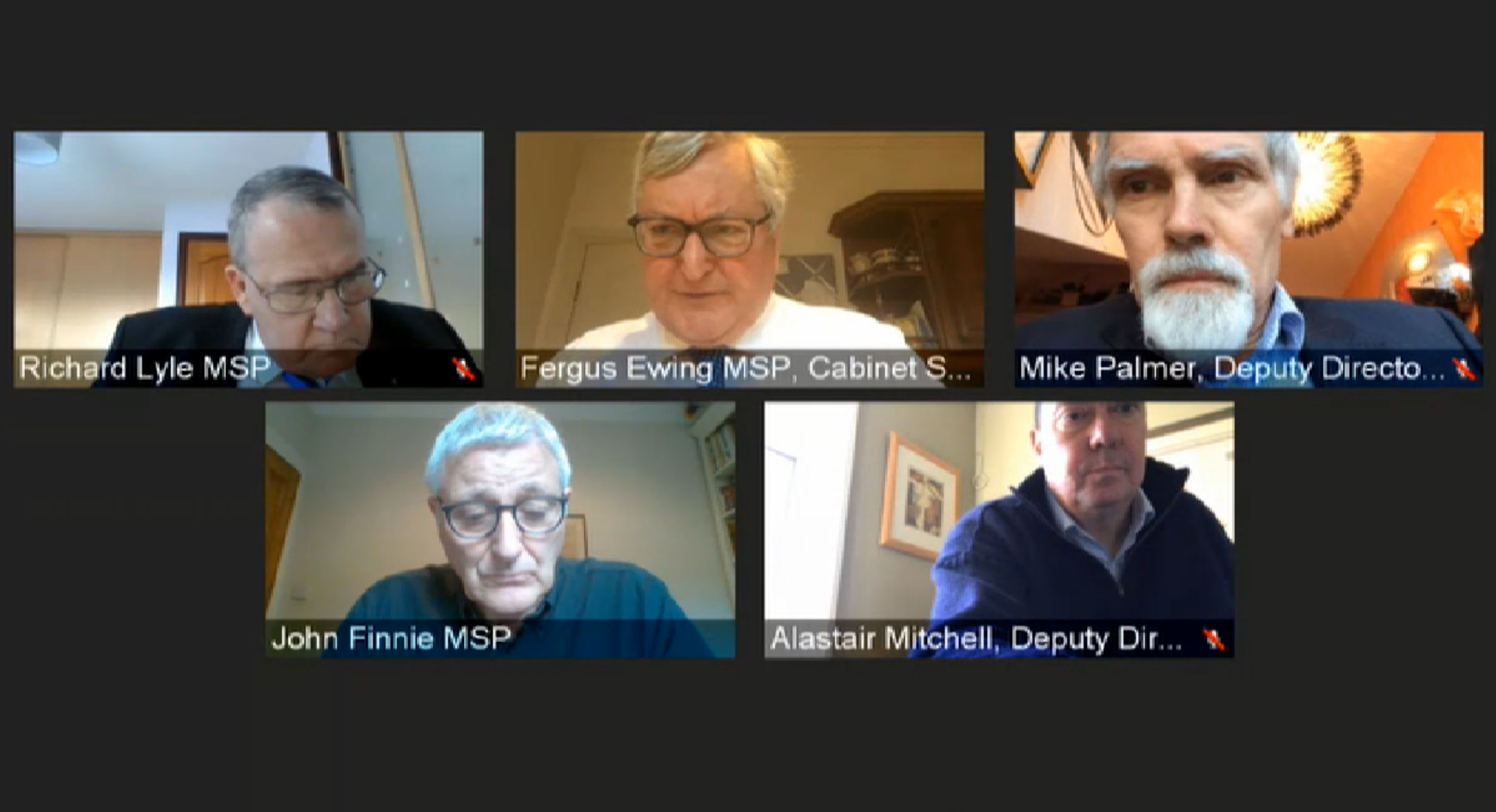Ewing defends fish farming industry

Scotland’s cabinet secretary for rural economy and tourism, Fergus Ewing, robustly defended the aquaculture sector at a grilling by members of the Scottish Parliament yesterday. He also promised that regulatory reform was on the way.
MSPs on the Rural Economy and Connectivity Committee were reviewing progress made in the two years since the committee published a critical report on the salmon farming sector. They quizzed Ewing and his civil servants on progress towards reforming the planning process, tackling welfare issues such as sea lice and mortalities, protecting wild salmon and ensuring that the industry’s projected growth over the next few years will be sustainable.
Ewing said: “The [industry’s] growth targets are sector-determined, but we support their ambitions for growth… we are ensuring that growth is not at the expense of other users.”
He noted a number of steps that had already been taken, including a finfish plan published by the Scottish Environment Protection Agency, new regulations preventing seal culling, tighter controls on the harvesting of wrasse as cleaner fish for farms, streamlining regulatory control of wellboat discharges and more timely reporting of sea lice infestations.
In response over why a new planning framework was not yet in place, he said that it was important to have an understanding of issues like sea lice and the impact of interaction with wild salmon before finalising a planning framework, not after.
He added, however, that the “spatial planning model” for considering applications for new farm sites – one of the key recommendations of the Salmon Interactions Working Group earlier this year – was “fairly close to being completed”.
Ewing said that many believe regulation in the sector is too complicated, but it was important not to tackle it on a piecemeal basis.
He concluded: “I see the aquaculture sector providing enormous benefits for Scotland, in remote Highland and island areas but also in engineering and scientific research. And it represents a means of producing protein that is compatible with our climate change objectives.
“I cannot think of a sector in the rural economy where there has been more investment.”

